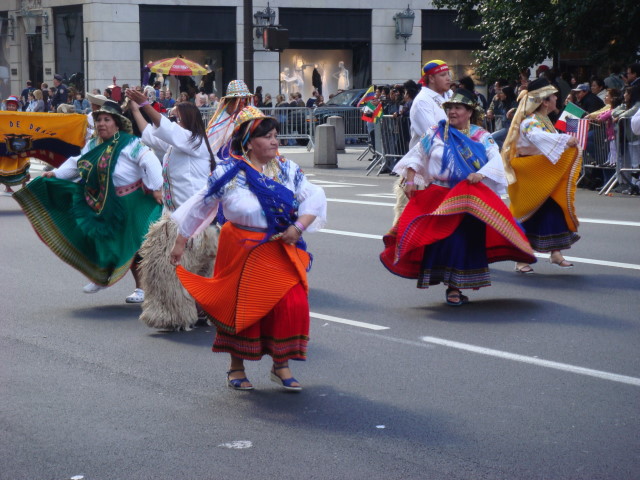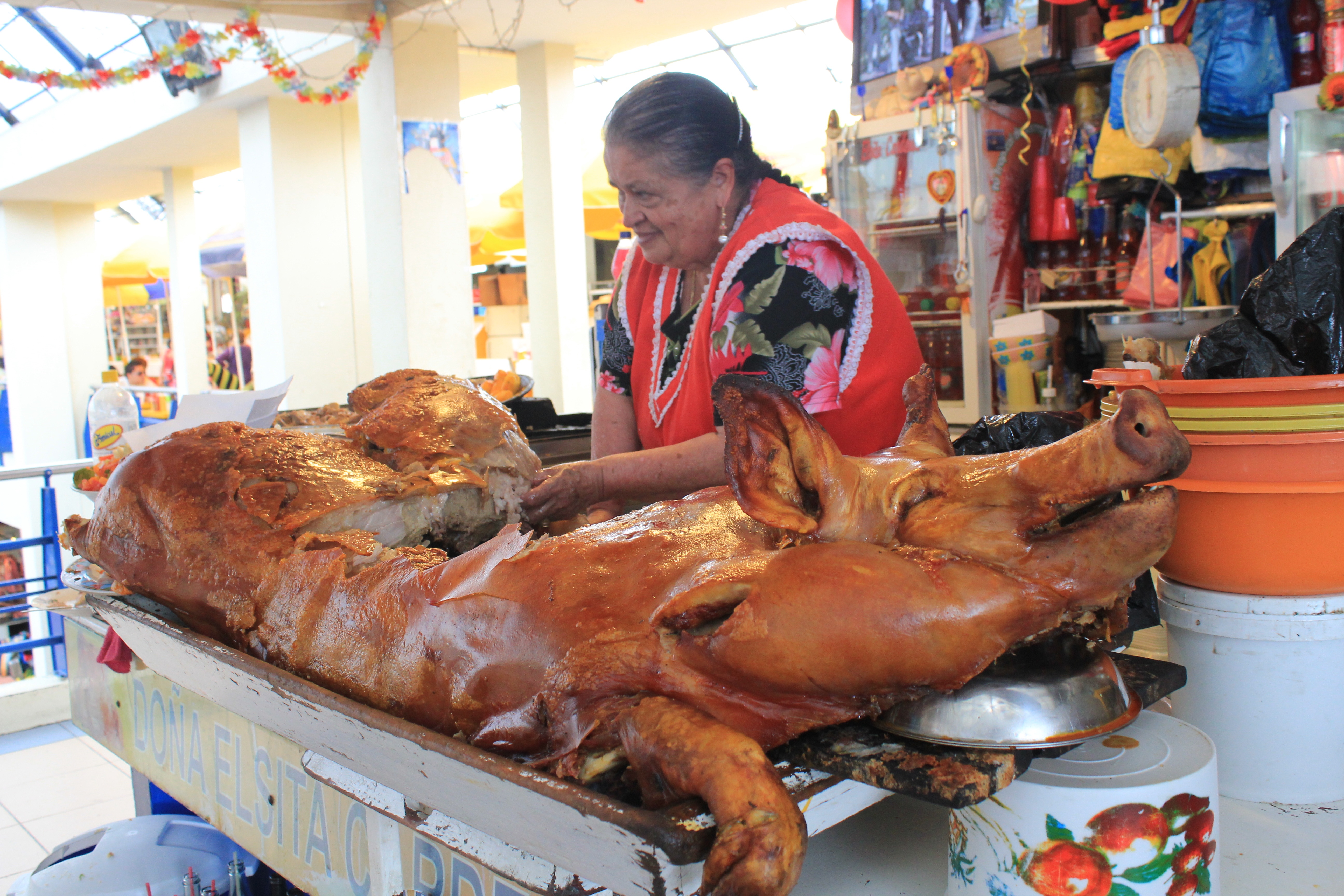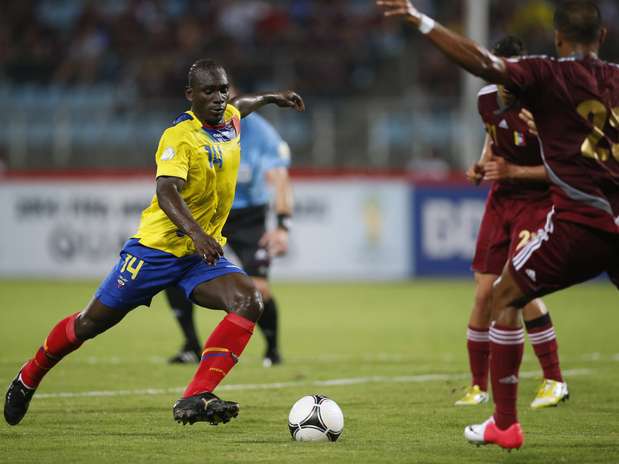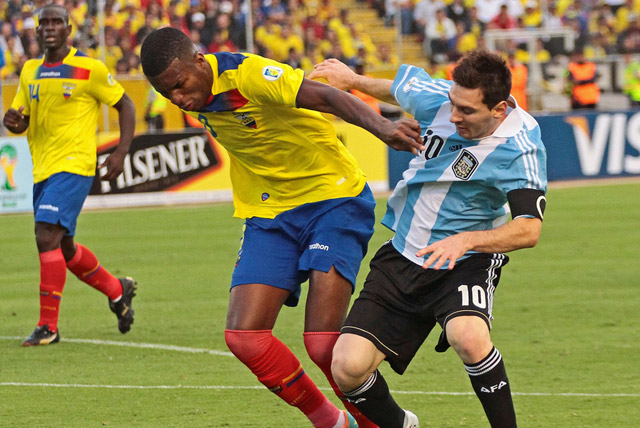The third edition of Liquid Subjectivity takes a rather neutral look at Football World Cup 2014 in Brazil, full of detailed content.
Friday 21 February 2014
Asian players who will miss the World Cup
Vote for the most interesting ones to be included in the World XI... although Asia is different, the same teams always qualify, and short of national team retirements, three Uzbek players make this list for their club and country performances.
African Players who will miss the World Cup
An impressive array of players from Africa will not showcase at the World Cup.
The African qualification process is the most difficult one, and there are loads of players that could be added. The traditional powers managed to snatch qualification at the last minute, but Senegal, Burkina Faso, Egypt, and Zambia constitute three teams that all-but-deserved to go instead.
Please vote in comments for those who should be included in the World Missing XI.
Eastern Europeans who will miss the World Cup
Eastern European who will miss the World Cup are also quite impressive, hence my decision to split Europe in 2 again.
The only one in the group who could still make it but based on the fact he hasn't played for the national team since 2012 is Arshavin.
Vote for the players you believe should be in the World Missing XI in the comments!
Western Europeans who will not be (or almost certainly not be) at the World Cup
These are the missing Western European Players... through injury or what you could call "wrong nationality" :)
Please vote for which of those should be in the World XI in the comments section
South Americans who will most likely (or definitely) miss the World Cup
This is a list of injured or ineligible players who will certainly, or to a high degree of likelihood not make the trip to the World Cup.
This team certainly could do well in the tournament don't you think?
Vote below for players that you think should be in the first 11 of missing world players.
Wednesday 5 February 2014
TEAM PREVIEW: ECUADOR

ECUADOR - "La Tri"
Population: 15.2m
Ethnic Groups: 71.9% Mestizo, 7.4% Montubio, 7.2% Afro-Ecuadorian, 7% Andean Indian, 6.1% Euro-Ecuadorian.
Registered Football Players: 30,855
Registered Football Clubs: 201
Most Successful Clubs: Barcelona Sporting Club, El Nacional, Emelec, LDU Quito, Deportivo Quito, Aucas.
Barcelona were Libertadores finalists twice, and LDU won it in 2008. LDU Quito also won the Sudamericana in 2009 and were runners up in 2011.

All Time Top Scorer:
Ermen Benítez with 191 goals (1980 to 1995) who is also the father of late National Team star Christian Benitez.
World Cup Perfomance:
2 participations (2002 and 2006), finnishing in the round of 16 in 2006 (ranked 12th overall).
Continental Perfomance: Copa America 4th place in 1993 and 1959.
How they get their calories:
Cuy – the widely available food that often shocks tourists in Ecuador is whole, grilled guniea pig known as “Cuy”. An inspiration in many “weird food” documentaries when you are served the thing you don’t know wether to eat it or hug it and repeat “I am sorry George.” Do you want to be facing a Cuy-eating defender?
Llapingacho – delicious. Typical of the mountain regions these potato (or sometimes sweet potato) cakes with a cheese filling are usually served with peanut sauce. Loads of carbs and a good deal of fat, mmmm.
Shrimp - You would not want to be a prawn frolicking in Ecuador’s beautiful surf water. As tempting as it sounds you are likely to go through a Forrest Gump list of ways to be eaten, often just in nice soup accompanied with Patacones (fried plantain slices).
Fruit – Mango, banana, papaya…. These words mean nothing to the Ecuadorian as all these plants are native to their country and come in dozens of daily varieties (like apples in Europe) including the least interesting variety, the export kind. Guanabana, naranjilla, maracuyá are fruits you should try at least once in your life.
The national beer: Pilsener is a good honest people’s beer, and one of several brand’s available. The beer tends to be light and refreshing to fit the warm climate, and there are several widely available brands.
From the anthem:
“Outraged your children on the yoke, Imposed by the arrogant Iberians, By their unjust and horrendous disgrace, Overcoming you fatally.”
In fact nearly every verse of the anthem is about how great the colonial Spaniards were.
How to blend in with the fans:
Tassles and feathers, lots of tassles and feathers. If you don’t have any of those in your closet, at least wear your funniest hat, you will fit in! Also Ecuadorian fans love to indigineous indian symbolism. Birds are in! Dressing up like a condor or pheonix or chicken will score you points!
Otherwise just don the yellow-blue-and-red and enjoy the unusual assortment of goods being sold in Ecuadorian stadiums, from pink watches to homemade cigarettes to tasty roadkill-stuffed-potato cakes, to beachfront property for $3.50.
The stereotype:
Ecuador conjures many images to foreigners, and not many of these stereotypes correctly grasp the vast diversity of the country.
I picked on a non-Ecuador versed friend and he said: “They are typical Latinos, kind of like Venezuelans, and rather short.”
What their neighbours know:
Ecuador has managed to retain a massive amount of geo-ethnic diversity. Some regions of Ecuador, like San Lorenzo where so many of their best players originate from, are heavily dominated by Afro-Ecuadorians. The country has tropical regions where Spanish is not the primary language, and where Quechua dialects are the primary form of communication.
Ecuador’s neighbours tend to know that they are getting a very mixed team, with exceptionally tall, strong, and fast players, as well as technical wizards with a low centre of gravity.
How they qualified:
After dominating the first half of the COMNEBOL campaign, they started dropping down the table, and came the shocking sudden death of legendary striker Chuco Benitez (a vital part of the attack really with his mobility). They recovered just enough to edge Uruguay to the last automatic qualifying spot.
They drew a lot of games away from home. But rarely lost at home, at high altitude in Quito.
The sad:
The death of Christian “Chucho” Benítez on July 29th 2013. He (although Qatari’s are campaigning to dampen this information) failed to receive timely medical attention after complaining of severe abdominal pain. The former Birmingham striker (135 goals in 288 games during his career) then went into respiratory failure and died of Cardiac arrest in the Doha summer heat. The debate about negligence still rages.
The happy joy joy:
Well, after the golden generation of players that literally turned Ecuador back into a footballing contender became a bit to ripe, there is a new highly interesting young generation already making their mark internationally. Ohh, and relative political stability and a slight economic upturn by South American standards.
An overview:
A real complete mix of strength and speed and experience, but with classic problems with raising their game to a tempo at which they pose could a great threat to other teams. Ecuador is a team which divides the offensive and defensive phases very completely.
Ecuador play hold, recover, and timed explosive run.
Team Strength: Just that, strength, many of the squad members are made of pure granite and oak. Well that and very decent technique by universal standard coupled with heaps of international experience in the ranks.
A good mix of old and young, an established manager, a great ability to hit teams on the counterattack, and the fact that Ecuador is so often underrated.
Also, long-range shots tend to thump in for Ecuador, both flanks are equally strong, and the midfield is very talented and boasts a good blend of players.
Team Weakness: Consistency, more of individual players than of the whole team. Rueda has had to drop some stars before their peak because of this. Also, they can be tactically indisciplined.
The forward line is dependent on Caicedo, and he doesn’t always feel like shouldering the burden.
Lastly the team is prone to foul indiscipline, with both Noboa and Castillo seeing an impressive amount of red in the career.
The Goalkeeping Department: 8.0
Ecuador has an excellent pedigree of goalkeepers, although they are all rather eccentric and don’t export well. Banguera is currently first choice, a tank of a keeper with great pace off-the-line and excellent one-on-one problem solving. Despite all this, he is just edging Dominguez and even third choice keeper Bone to the starting spot. There are others, Ecuador’s keepers are all strong, experienced, used to dealing with lazy, undisciplined defences, and can be game-changing.
Defenders: 7.0
A whole point has to be dropped from the previous generation of Ivan Hurtado and Giovanny Espinoza. The current defense has talented youngsters and only one really tested center back in Guagua. Where the strength really lies is in the wingbacks who are an excellent and mobile platform with pace and technical skill.
The middle: 8.0
Ecuador’s midfield is often being underrated. Rojas is a real LIGA MX star in Mexico with his blistering pace and technique, Jefferson Montero is a consistent young prospect who is already making a mark. They are further supported by reliable ballwinners like Noboa and Castillo, and the experience and influence of Antonio Valencia, who despite many Anglo-centric analyses, is not the only player in the team.
The attack: 4.0
Ecuador has plenty of attacking talent, but its highly underachieving. Many players like Narciso Mina were supposed to step in and fill in for the absence of Benitez but the only competitive striker is Russian Premier League star Felipe Caicedo, although he scores regularly for the national team he has not been as prolific for his clubs, and now decided to move to the UAE which is not likely to help him overcome his own laziness prior to the World Cup.
The coach: 8.5
“El Profi” (Professor but sounds like prophet) Reinaldo Rueda will be 57 in April.
The Colombian former university professor is vastly experienced with national team setups having managed Colombia (at almost all levels of the international setup), Honduras (where he was given a free hand by the FA and is partly responsible for their current World Cup qualification), and now Ecuador. His club experience comes from the successful youth-based Deportivo Cali, Cortuluá, and Independent Medellin.
In Ecuador he found a really good match for his disciplined, direct 4-4-2 with do deep-lying midfielders (an anchor and a playmaker usually), exploiting the team’s natural physical and strengths to great effect with counter-attacks and direct, explosive play. He is also an excellent man-manager, something which was really tested after the sudden death last year of Christian Benitez, the country’s top scorer.
Capable, encouraging tactical and squad discipline, Rueda is a manager who’s team’s rarely under-perform, and if so, they really manage learn from their mistakes. He likes to clearly divide offensive and defensive responsibilities in his teams, and is known for his form-topping-based training approach.
He holds a M.A. from the University of Cologne in Germany, and will be facing his former squad of Honduras as well as underachievers France, and promising Switzerland in June.
You could sum-up the man as a European-style manager by South-American standards who is excellent at making the most of limited resources and improves team consistency.
The Tactics:
Ecuador has suffered from a lack of positioning discipline and 90 minute consistency in the past. Rueda plays a 4-4-2 with two defensive midfielders’ one anchor (usually the Isengardish Segundo Castillo) and one playmaker also capable of applying effective pressure in the offensive zone (Noboa is a shoe-in, and scores important goals). Ecuador’s tradition of speedy and technical players means there is a host of good wingers to choose from.
The two attackers system is more effective, because it combines a mobile advanced forward (very much in contention) with a target man (Caicedo is unchallenged as a starter). This can change to an attacking midfielder effectively creating a defensively rigid, offensively fluid 4-2-3-1.
The variation comes with the deployment of the second forward, and with how offensive Ecuador’s wing-backs are allowed to be on a given match-day. Ecuador you could say, play similar football to Borussia Dortmund, but with more conservative defensive duties.
Everybody knows…. Antonio Valencia. Although much more was expected of him when he was going to Manchester United, and he is associated with players that never managed to really make a consistent impact under Ferguson. Rumour has it Moyes wants him out. His biggest contribution comes with crossing and passing, and experience from the world class stage. He is not the dribbler and flair player that he seemed to be becoming when young.
Should be more famous…. Christian Noboa, a really versatile midfielder who has a great timing for arriving late in the box and scoring, but also is an excellent and intelligent presser and ball winner. Think of him as a South American Xavi. He has been a very important player in the Russian Premier League in recent years, scoring 34 goals from defensive/central midfield with Rubin Kazan and Dinamo Moscow.
No one has heard off… Juan Carlos Paredes. A fast, technical attacking right back who I love to watch, although he has yet to score for the national team in 34 appearances, he bags loads of goals in the Ecuadorian league from defence, 22 in the last couple of seasons. He should be making a higher profile move after this World Cup.
Unfulfilled talent: Joffre Guerrón, the battering ram of the LDU Quito offense that stormed the Libertadores trophy in 2008 and the Sudamericana in 2009. He travelled failing at various clubs and finally settled in China, where he managed 12 goals in 37 appearances. He is very unlikely to travel to this World Cup because at this level he is now a shadow of himself despite being only 28.
Still going… Segundo Castillo, literally “the second castle,” the Everton and Red Star Belgrade defensive midfielder is having a second honeymoon with himself at 31. Think Isengard and the White Hand, his game breaking is well complemented by a rapacious long shot and efficient passing.
Édison Méndez is only 34, but feels like 40, the skippy, talented PSV midfielder is an old man, although takes fantastic free-kicks and could still make the team in May.
The heart of the team…. Walter Ayoví, a highly underrated player. Working up and down the left flank, strong, technical, clinical, he contributes many assists, and often makes a game-changing play despite being 34. He is by far the most important Ecuador player, controlling the tempo and captaining his team to tactical discipline, which addresses their biggest deficit. He is one of several mobile long-range bombers in the Ecuador team.
The goalscorer.... Felipe Caicedo can be a powerful, explosive forward, but he gets stuck in frequent patches of immobility, and many fans in Russia believe him to be far slower than he actually is. After Basel he failed to impress in Manchester City despite being touted as the next great thing, and ended up in Russia via Levante and Malaga with a few goals here and there. He now plays in the UAE with Al-Jazira, something which could affect his June form.
He has a rapatious shot and a good first-touch technique which makes him comfortable with Ecuador as a lone attacker or target man, so comfortable that he has bagged 15 goals for the national team.
The young star… Jefferson Montero lit up the left wing for Levante and Betis in Spain. An integral part of Betis’s superb 2012-13 season, he did everything but score. Technical, and intelligent as a winger, he doesn’t dribble as much as time his runs to perfection, and contribute many assists. He finally started scoring in Mexico with Morelia this season with a non-modest 9 goals. He really links up well on the left with Ayoví.
Candidate for discovery of the tournament… At 24 Joao Rojas is a dangerous and explosive player with excellent control at speed. He is starting to make a mark on Ecuador but something tells me there is a lot more to come out of him. He has already done so with Cruz Azul in Mexico
Recognized player not likely to feature… Franklin Salas (32), Paul Ambrosi (33), Giovanny Espinoza (36), Edison Mendez (34) are well known but all in doubt, the LDU Quito heroes and other members of the golden generation still playing but many have lost their peak form, and Rueda is unsentimental in his selection criteria. Mendez is still the most likely of the lot.
The prospect of tomorrow… Renato Ibarra is likely to make the team, as the zappy Vitesse winger is a great joker on the bench, and a great late-game sub for Antonio Valencia. He weaves, he dribbles, he cuts in, he hugs the line he scores, and all with exceptionally excellent technique. He can double as right defender, and watch this one as a major player of the future. Cristian Ramírez is an exciting young left back on the books with Dusseldorf, he might or might not make the team.
Worth mentioning: Frickson Erazo (25) is a superbly athletic central defender who will be making the trip. He is very fast and has good technique, although needs (and is very likely soon to get) experience in a better league context. Next year you are likely to see him featuring in an important league.
The core team: Banguera, Dominguez (GK) – Ayovi, Guagua, Erazo, Paredes (Def) – S.Castillo, Saritama, A.Valencia, Noboa, Montero, J.Rojas (Mid) – F.Caicedo (Att) Captains: Valencia and Ayovi.
Could still make the squad… Narciso Mina, a slow but clever and technical striker. This 1.72 meter short forward is one of those players that seems to be a lot better than he is when you watch him. He failed in Ukraine, he failed here, he failed there, but now suddenly he is scoring bags and bags of goals at club level, first in Ecuador (58 in 70 appearances) then in Mexico (7 in 30 but many from the bench at America). He is a space-finder with an excellent touch and finishing reflex.
Fidel Martinez an exciting attacking midfielder from Xolos Tijuana, Marlon de Jesus or Juan Anangono two powerful but sloppy forwards from the Mexican league and the MLS respectively, and Christian Suarez who is an exciting wide forward from the Ecuadorian league. Will be missed… Benitez went before his time, needless to say taking more than half of Ecuador’s final-third quality with him.
A great team moment: Lets go for a new moment to October 11th 2013, when Jefferson Montero goal beats direct qualification rivals Uruguay and all but books their tickets to Brazil.
A legend: Álex Aguinaga, the slow, perhaps overweight midfield magician was an exceptional player scoring 23 goals in 109 caps before his retirement in 2004.
The group:
France (June 25th) should have problems with Ecuador’s strength and counter attack, but the likes and Ribery and Cabaye can unnerve the inexperienced defence.
Honduras (June 20th) should find “La Tri” as a bridge to far, especially facing a coach that knows all their strengths and weaknesses, and
Switzerland (June 15th) are exactly the type of team that Ecuador do not do well against.
Pre Tournament Friendlies:
Ecuador v. Australia (London) on March 5th 2014
Holland v. Ecuador (Amsterdam) on May 17th 2014
Mexico v. Ecuador (Texas) on May 31st 2014
Ecuador v. England (Miami) on June 4th 2014
Prognosis: The fixture order is important for Ecuador because they are playing a tough European defence first with Switzerland.
If I am squeezed for a prognosis I see Ecuador matching or improving on their best round of 16 performance due to the excellent standing of the team currently. They could also fall apart after a loss to Switzerland, and not have any momentum by the time they play Deschamp's France.
Note: I have little cut-outs of all the teams, and in a much cleaner format than FIFA I draw teams from a little Chinese lacquered box I have on my desk. Here is the ticket:
Subscribe to:
Posts (Atom)































